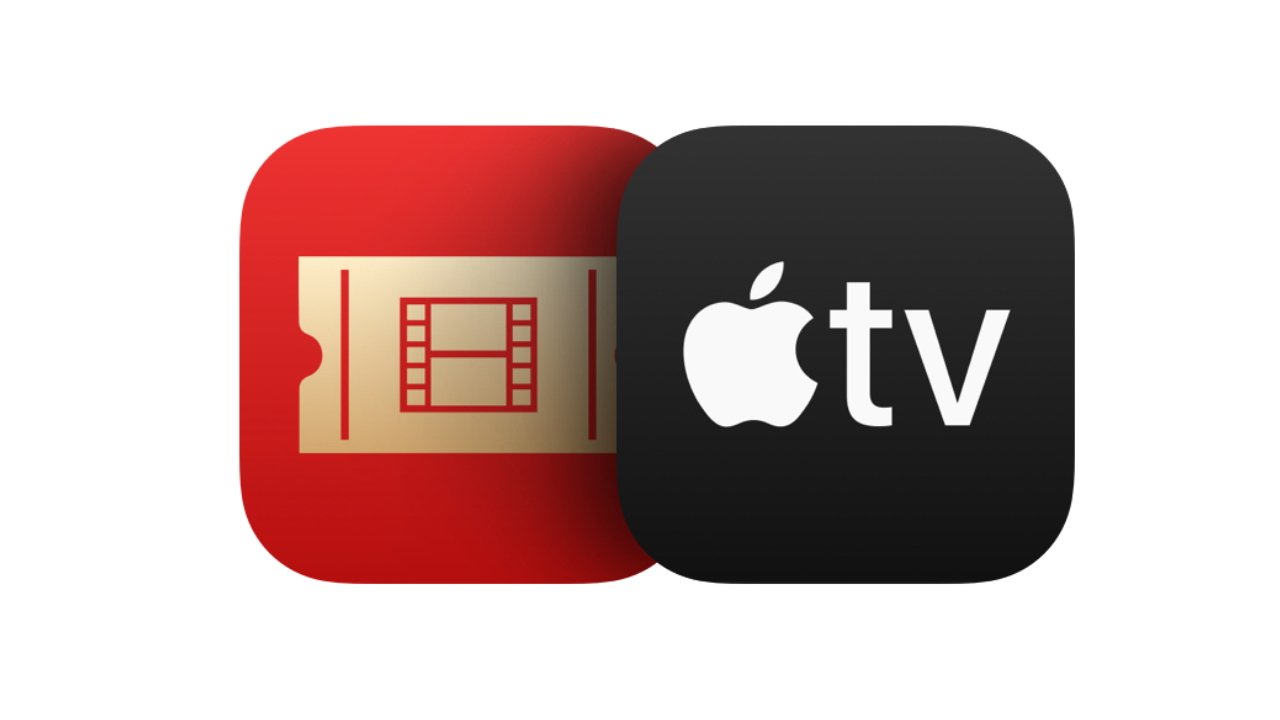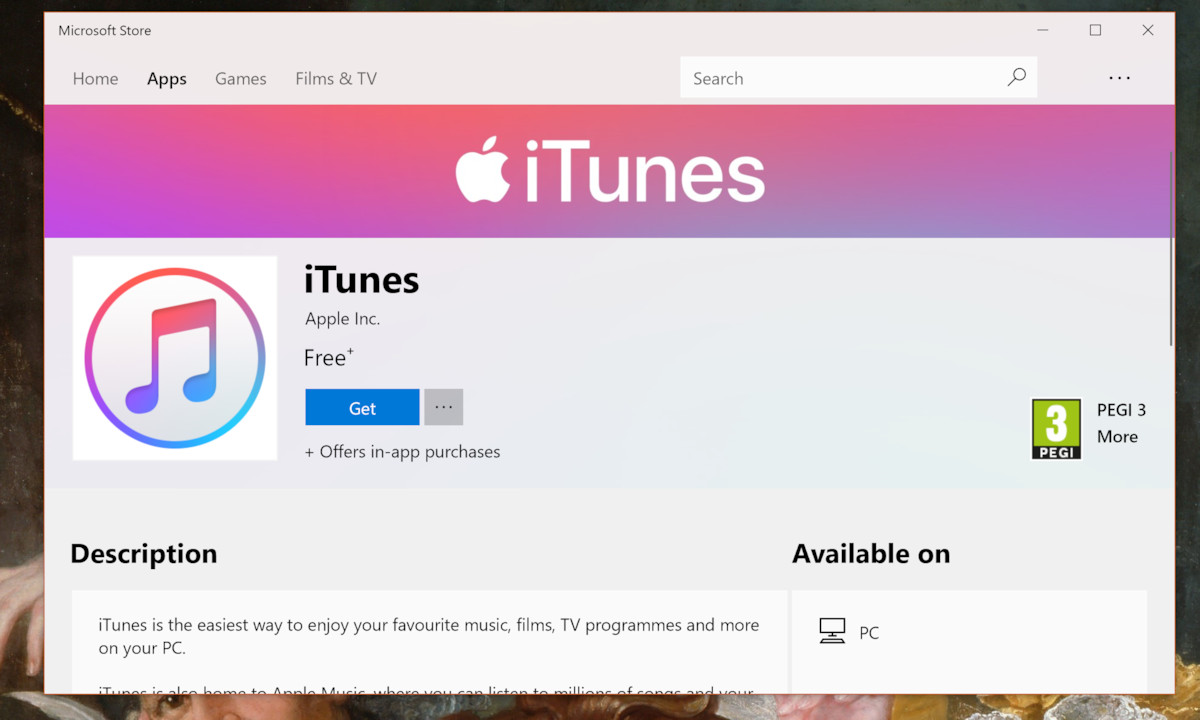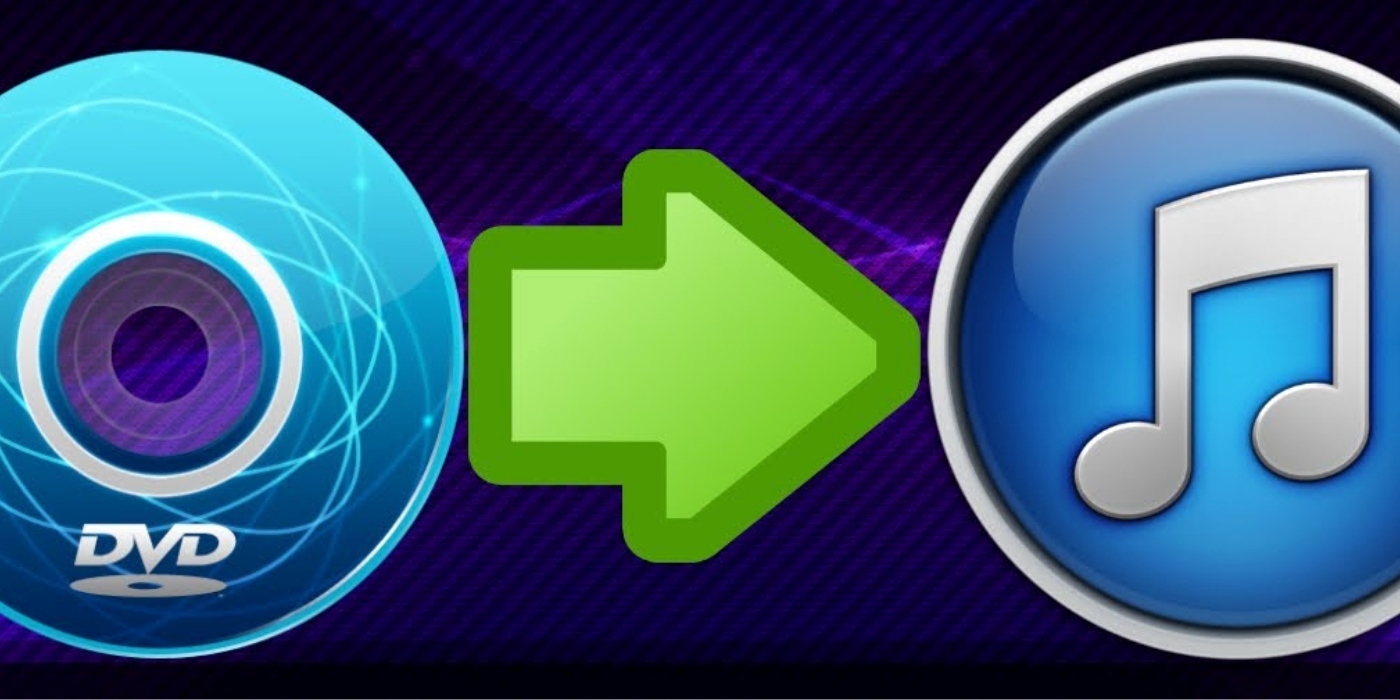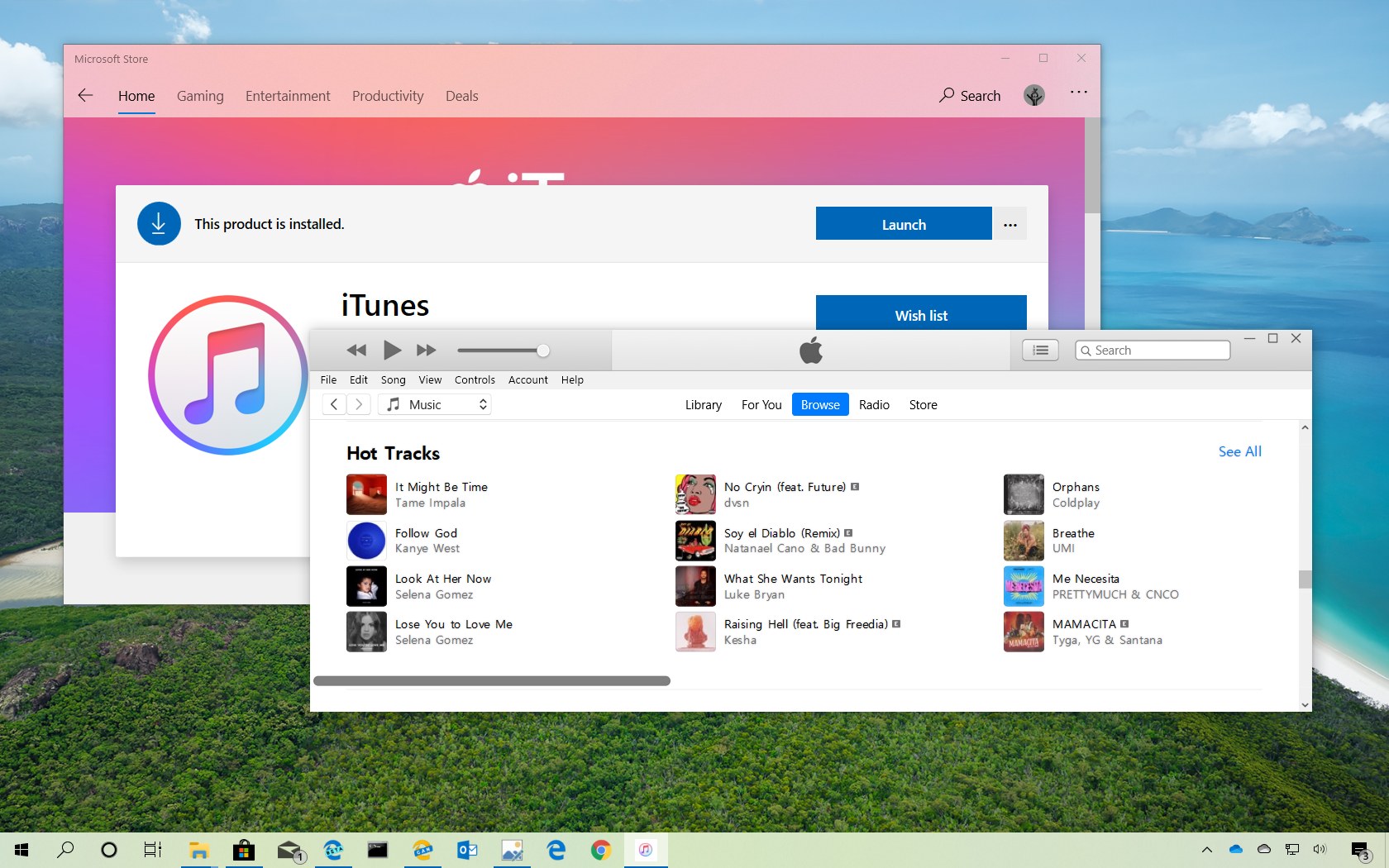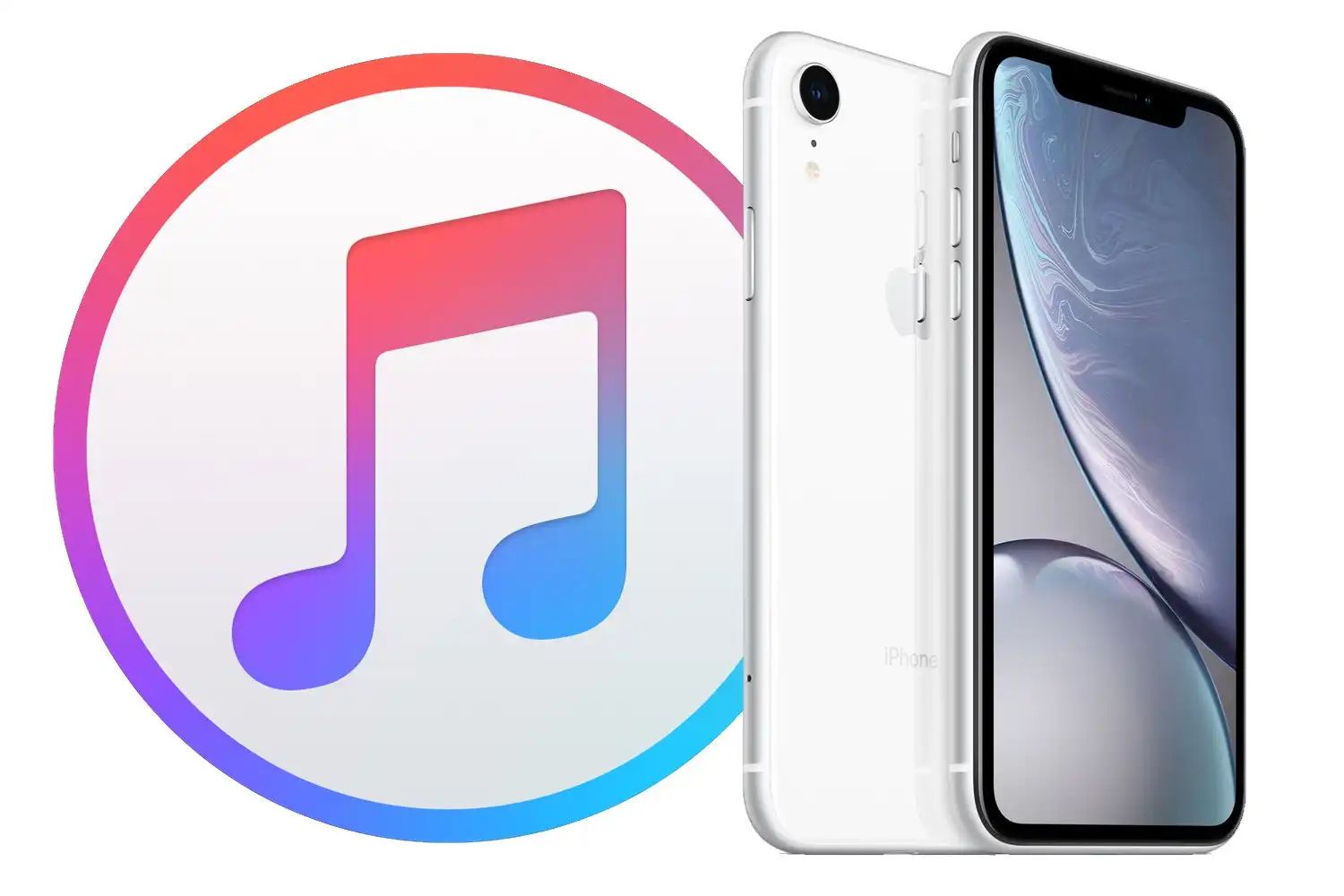Introduction
Have you ever experienced the frustration of waiting for your favorite movies to download on iTunes? Slow download speeds can be a major annoyance, especially when you’re eager to indulge in some entertainment. But don’t worry, there are steps you can take to make your iTunes movie downloads faster and more efficient.
Downloading movies on iTunes allows you to watch your favorite films on your own time, whether you’re on a long flight, at a coffee shop, or simply relaxing at home. However, slow download speeds can hamper the experience and make it difficult to enjoy your movies without constant buffering interruptions.
In this article, we will explore various methods to help improve your iTunes movie download speeds. From checking your internet connection to optimizing your device settings, these tips will enable you to enhance your downloading experience and get your movies ready to watch in no time.
While it’s important to note that internet speeds can vary depending on your location and provider, these tips are designed to help you maximize the speed and efficiency of your iTunes movie downloads within the limits of your existing internet connection.
So, if you’re tired of waiting for hours to download your favorite movies or experiencing frustrating buffering during playback, read on to discover how you can optimize your iTunes movie downloads and enjoy your films without any interruptions.
Understanding Download Speeds
Before diving into the methods to improve your iTunes movie download speeds, it’s essential to understand how download speeds work and what factors might be affecting them.
Download speed refers to the rate at which data is transferred from the internet to your device. It is typically measured in megabits per second (Mbps) or kilobits per second (Kbps). A higher download speed means that data can be downloaded at a faster rate, resulting in quicker downloads.
Several factors can contribute to slow download speeds. The most common ones include:
- Internet Connection: The quality and speed of your internet connection play a crucial role in downloading files. If you have a slow or unstable connection, it can significantly impact your download speeds.
- Device Performance: The performance of your device, such as your computer or mobile device, can affect download speeds. Older devices or those with limited processing power may struggle with faster downloads.
- Network Congestion: During peak hours or in densely populated areas, network congestion can occur, leading to slower download speeds. This congestion happens when many users are simultaneously accessing the internet, putting strain on the network infrastructure.
- Server Speed: The server from which you are downloading the movie also plays a significant role in the download speed. If the server is slow or overloaded, it can slow down the overall download process.
By understanding these factors, you can begin to troubleshoot and address potential issues that may be affecting your download speeds. In the following sections, we will explore various solutions and optimizations to help you overcome these challenges and achieve faster iTunes movie downloads.
Remember, it’s essential to consider each of these factors when trying to improve your download speeds. A combination of strategies can lead to the most effective results, ensuring a smoother and quicker downloading experience for your iTunes movies.
Checking Internet Connection
One of the first steps in improving your iTunes movie download speeds is to examine your internet connection. A slow or unstable connection can significantly impact the time it takes to download movies. Here are some methods to check and strengthen your internet connection:
- Run a Speed Test: Conduct a speed test to determine your current internet speeds. Various online tools, such as Ookla’s Speedtest, can measure your download and upload speeds. Compare these results to the internet package you have subscribed to, as it will give you an indication of whether you are getting the speeds you are paying for.
- Consider Wired Connection: If you are using Wi-Fi for your internet connection, consider switching to a wired connection directly to your router using an Ethernet cable. Wired connections generally offer more stability and higher speeds compared to wireless connections.
- Move Closer to the Router: If you are using Wi-Fi and experiencing slow download speeds, try moving closer to the router. Distance and obstacles like walls and furniture can weaken the Wi-Fi signal, leading to slower speeds. Being in close proximity to the router can help ensure a stronger and faster connection.
- Reset Your Modem and Router: Sometimes, restarting your modem and router can resolve connectivity issues and improve download speeds. Unplug the power cords, wait for a minute, and then plug them back in. Allow the devices to reboot and establish a fresh connection.
- Upgrade Your Internet Package: If you consistently experience slow download speeds, it may be worth considering upgrading your internet plan. Contact your service provider to explore options for faster speeds. This can be particularly beneficial if you regularly download large files, such as iTunes movies.
By examining and optimizing your internet connection, you can address any issues that may be hindering your iTunes movie download speeds. These simple steps can make a significant difference in the overall speed and reliability of your internet connection. Once you have ensured a strong and stable connection, you can move onto other steps to further enhance your iTunes movie downloading experience.
Updating iTunes
Another crucial step in improving your iTunes movie download speeds is to ensure that you have the latest version of iTunes installed. Updates to the iTunes software often include bug fixes, performance enhancements, and optimizations that can contribute to faster and more efficient downloads. Here’s how you can update iTunes:
- Check for Updates: Open iTunes on your computer and navigate to the “Help” or “iTunes” menu. Look for an option that says “Check for Updates.” Click on it, and iTunes will check if there are any available updates for your version of the software.
- Install Updates: If a new update is found, follow the prompts to install it. Depending on the size of the update, it may take a few minutes to complete the installation. Make sure you are connected to the internet during this process.
- Enable Automatic Updates: To ensure that you always have the latest version of iTunes, you can enable automatic updates. Go to the “Preferences” or “Settings” section of iTunes and look for the option to enable automatic updates. With this feature enabled, iTunes will automatically check for updates and install them in the background, without requiring your intervention.
Updating iTunes regularly not only enhances its performance but also keeps it compatible with the latest features and functionalities of the iTunes Store. This, in turn, can contribute to faster download speeds for your movies.
It’s important to note that updating iTunes alone may not guarantee a drastic improvement in download speeds. However, it is a necessary step to ensure that you are benefiting from the latest optimizations and improvements to the software. Combined with other strategies, updating iTunes can help you achieve faster and more seamless iTunes movie downloads.
Closing Unnecessary Programs
When it comes to optimizing your iTunes movie download speeds, one often overlooked factor is the number of programs running concurrently on your device. Running multiple programs simultaneously can consume valuable system resources, such as processing power and network bandwidth, which can slow down your download speeds. Closing unnecessary programs can free up these resources and allocate them to your iTunes movie downloads, resulting in faster and more efficient downloads. Here’s what you can do:
- Identify Resource-Intensive Programs: Open your Task Manager or Activity Monitor (depending on your operating system) and take a look at the list of running programs. Identify any programs that are utilizing a significant amount of CPU or network resources. These are likely candidates that can be closed to free up resources for your iTunes movie download.
- Close Unnecessary Programs: Once you have identified resource-intensive programs, close any that are not essential to the current task or that can be temporarily paused. Examples of programs that can often be closed include web browsers with multiple tabs open, video streaming services, file-sharing applications, and software update managers.
- Disable Background Processes: Some programs may continue to run background processes even when closed. Use the options within the program to disable any background processes or check for any system tray icons that may represent running programs. Right-click on these icons and choose to exit or close the associated processes.
- Limit Bandwidth Usage: If you have other programs that require an internet connection, such as cloud backup services or software updates, consider temporarily pausing or limiting their bandwidth usage. This allows more bandwidth to be allocated to your iTunes movie download, enhancing the download speed.
By closing unnecessary programs and freeing up system resources, you can maximize the performance of your device and improve the download speeds of your iTunes movies. It’s important to note that this optimization method may have a more noticeable impact on older or lower-spec devices, where system resources are more limited. However, even on high-end devices, closing unnecessary programs can still help improve overall performance and download speeds for your iTunes movies.
Expanding Storage Space
Running low on storage space on your device can significantly affect the download speeds of your iTunes movies. When your device has limited storage, it can struggle to allocate enough space for the temporary files necessary for the download process, which can lead to slower speeds. Expanding your storage space can help alleviate this issue and improve your iTunes movie download speeds. Here are a few methods to consider:
- Delete Unnecessary Files: Start by decluttering your device and removing any files or applications that you no longer need. This can free up valuable storage space and create more room for your iTunes movie downloads. Be sure to empty your trash or recycling bin after deleting files to completely remove them from your device.
- Move Files to External Storage: If you have large files, such as photos, videos, or documents that you don’t need immediate access to, consider moving them to an external storage device. This can be an external hard drive, USB flash drive, or cloud storage service. By moving these files off your device, you create additional space for your iTunes movie downloads.
- Upgrade Internal Storage: For devices with upgradable internal storage, such as laptops or desktop computers, consider upgrading to a higher-capacity storage drive. This provides more room for storing files and can improve the overall performance of your device, including download speeds.
- Use Network Attached Storage (NAS): Network Attached Storage (NAS) devices provide additional storage space that can be accessed over your local network. By connecting a NAS device to your network, you can offload files and create more storage space on your device for your iTunes movies.
Expanding your storage space not only helps in improving your iTunes movie download speeds but also allows you to keep more movies and media on your device for offline viewing. It’s important to regularly review your storage usage and opt for a solution that best fits your needs, whether it’s deleting unnecessary files, moving them to external storage, or upgrading your internal storage.
By ensuring you have ample storage space available, you can create a smoother and more efficient downloading experience for your iTunes movies. So, take some time to organize and expand your storage, and get ready to enjoy your favorite movies without any storage-related interruptions.
Choosing the Right Network
When it comes to optimizing your iTunes movie download speeds, selecting the right network can make a significant difference in the overall performance. Different networks offer varying levels of speed, reliability, and stability, which can impact your download experience. Here are some factors to consider when choosing the right network for faster iTunes movie downloads:
- Wi-Fi Network: If you are utilizing a Wi-Fi network for downloading iTunes movies, ensure that you are connected to a strong and stable Wi-Fi signal. Choose a network with a robust signal strength and minimal interference from other devices or networks. Additionally, consider using the latest Wi-Fi standards (such as Wi-Fi 6) for faster speeds and better network performance.
- Ethernet Connection: For the fastest and most reliable download speeds, consider using an Ethernet connection directly from your device to the router. Ethernet connections offer a more stable and consistent connection compared to Wi-Fi, which can result in faster iTunes movie downloads.
- Mobile Network: If you are downloading iTunes movies on a mobile device, ensure that you have a strong and stable mobile data connection. Check if you have a 4G or 5G connection and if it is available in your area. Keep in mind that mobile data speeds can vary depending on your location, provider, and network congestion.
- Tethering: If you are using your mobile device’s internet connection to download iTunes movies on your computer, consider tethering your device. Tethering allows you to share your mobile data with your computer using a USB cable or a personal hotspot. This can provide a more reliable and potentially faster connection compared to relying solely on Wi-Fi or mobile data.
- Public Wi-Fi: When using public Wi-Fi networks, be cautious as they can be unreliable and prone to slower speeds due to high usage and limited bandwidth. Instead, opt for more secure and reliable networks such as your home or trusted networks.
By selecting the right network for your iTunes movie downloads, you can ensure a more stable and faster download experience. Take into account your specific situation and device capabilities to determine which network option is best suited for your needs.
Remember, even with the latest Wi-Fi standards, Ethernet connections generally offer the fastest and most consistent download speeds. If possible, consider using an Ethernet connection for optimal performance when downloading iTunes movies.
By making informed choices about your network connection, you can maximize your download speeds and enhance your overall iTunes movie downloading experience.
Resetting Network Settings
If you’re experiencing persistent issues with your network connection or slow download speeds when downloading iTunes movies, resetting your network settings can help resolve underlying issues and improve overall performance. Resetting network settings essentially clears out any configuration or connection-related problems that may be affecting your downloads. Here’s how you can reset network settings on your device:
- Restart your Device: Begin by restarting your device. This simple step can sometimes resolve connection issues and clear out temporary network glitches.
- Reset Network Settings on iOS: If you’re using an iOS device, navigate to the Settings app, then go to “General” and select “Reset.” Choose the option to “Reset Network Settings.” Keep in mind that this action will reset Wi-Fi networks, passwords, and cellular settings, so make sure you have this information handy.
- Reset Network Settings on Android: On Android devices, the process may vary slightly depending on the manufacturer and version of the operating system. Generally, you can find the network settings in the Settings app, under “System” or “Connections.” Look for an option to “Reset Network Settings” or “Reset Wi-Fi, Mobile, and Bluetooth.” Again, be aware that this action will remove saved Wi-Fi networks and passwords.
- Reconnect to Wi-Fi Networks: After resetting the network settings, re-establish connections to your Wi-Fi networks by entering the appropriate passwords. This step ensures that your device is connected properly and can access the internet without any hindrance.
- Confirm Router Settings: If you continue to experience slow download speeds after resetting your device’s network settings, check the configuration of your router. Ensure that the router’s firmware is up to date, and its settings are optimized for performance. You can refer to the router’s user manual or contact the manufacturer for guidance.
Resetting network settings can help resolve issues related to network connectivity and configuration, ultimately improving your iTunes movie download speeds. It’s a simple and effective troubleshooting step that can be performed on various devices.
However, it’s important to note that by resetting network settings, you will lose any saved network-specific information, such as passwords and custom network settings. Therefore, ensure you have this information handy before proceeding with the reset.
If you find that resetting network settings doesn’t significantly improve your download speeds, consider exploring other troubleshooting methods or contacting your internet service provider for further assistance.
Restarting Devices
When you encounter slow download speeds while downloading iTunes movies, sometimes a simple solution can be the most effective. Restarting your devices, including your computer, smartphone, tablet, or any other device involved in the downloading process, can help resolve common issues and improve overall performance. Here’s how you can restart your devices to potentially enhance your iTunes movie download speeds:
- Close Applications: Before restarting your device, make sure to close any applications or programs that are running. This ensures a clean restart and allows your device to allocate its resources solely to the download process.
- Shut Down and Start Up: On your computer, select the “Start” or “Apple” menu, then choose the option to shut down. Wait for a few moments, then press the power button to start your device again. On smartphones or tablets, press and hold the power button, then follow the instructions to shut down and restart your device.
- Leave Unplugged: For devices like routers or modems, it is beneficial to unplug them from the power source for about 30 seconds. This action helps clear out any temporary glitches and gives the devices a fresh start when plugged back in.
- Reconnect to Wi-Fi or Ethernet: After restarting, reconnect your device to the Wi-Fi network or re-establish the Ethernet connection. This ensures that the device is properly connected to the network and can access the internet without any issues.
Restarting your devices can help resolve various issues that may be affecting your iTunes movie download speeds. It refreshes the system, clears out temporary glitches, and can improve the overall performance of your device.
Additionally, restarting your devices allows them to free up any allocated resources, close any unnecessary processes, and establish a fresh connection to the network. This, in turn, can potentially lead to faster and more stable download speeds for your iTunes movies.
Remember to restart both the device running iTunes and the network equipment, such as routers or modems, to ensure a comprehensive restart process. This will help eliminate any potential bottlenecks or issues that could be hindering your download speeds.
If you continue to experience slow download speeds after restarting your devices, consider exploring other troubleshooting methods or contacting support for further assistance.
Contacting Apple Support
If you have tried various troubleshooting methods and are still experiencing slow download speeds with your iTunes movies, it may be time to reach out to Apple Support for further assistance. Apple Support can provide specialized guidance tailored to your specific device and software setup. Here’s how you can contact Apple Support:
- Apple Support Website: Visit the official Apple Support website at https://www.apple.com/support/. Here, you can search for articles, troubleshooting guides, and resources related to iTunes movie downloads. If you can’t find the solution you’re looking for, you can proceed to the next step.
- Apple Support App: Download and install the Apple Support app on your device from the App Store. This app provides instant access to Apple Support resources, chat support, and the ability to schedule a call with an Apple Support representative.
- Phone Support: If you prefer to speak to an Apple Support representative directly, you can call Apple’s customer support line. Visit the Apple Support website or the Apple Support app to find the appropriate phone number for your region.
- Live Chat: Apple Support offers live chat support through the Apple Support website or the Apple Support app. This feature allows you to chat with a support specialist in real-time and get assistance with any issues you might be facing.
When reaching out to Apple Support, provide them with detailed information about your device, software version, and the specific issue you are experiencing. This will help the support representative understand your situation better and provide more accurate guidance.
Apple Support personnel are well-trained and knowledgeable about Apple products, including iTunes and download-related issues. They can guide you through troubleshooting steps specific to your device and help identify any potential underlying problems.
By contacting Apple Support, you can access professional expertise and guidance to help overcome any persistent issues or technical glitches that may be affecting your iTunes movie download speeds.
Remember, Apple Support is there to assist you, so don’t hesitate to reach out if you are facing challenges or need further clarification regarding your download speeds or any other iTunes-related concerns.







